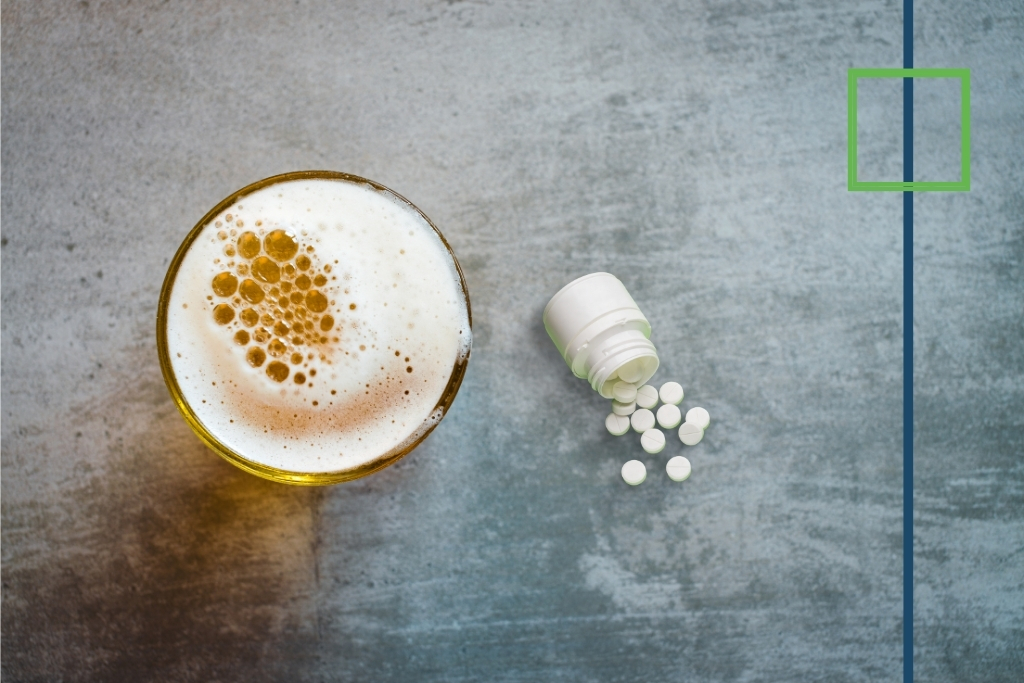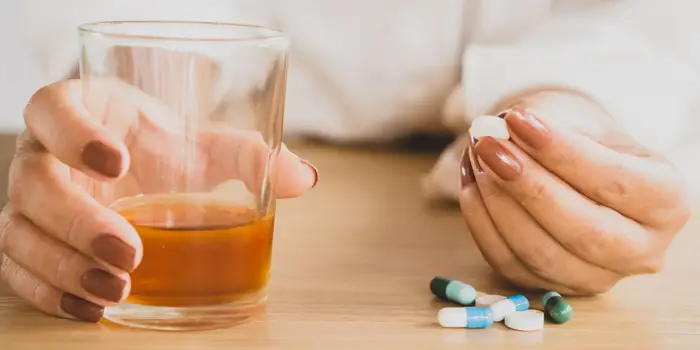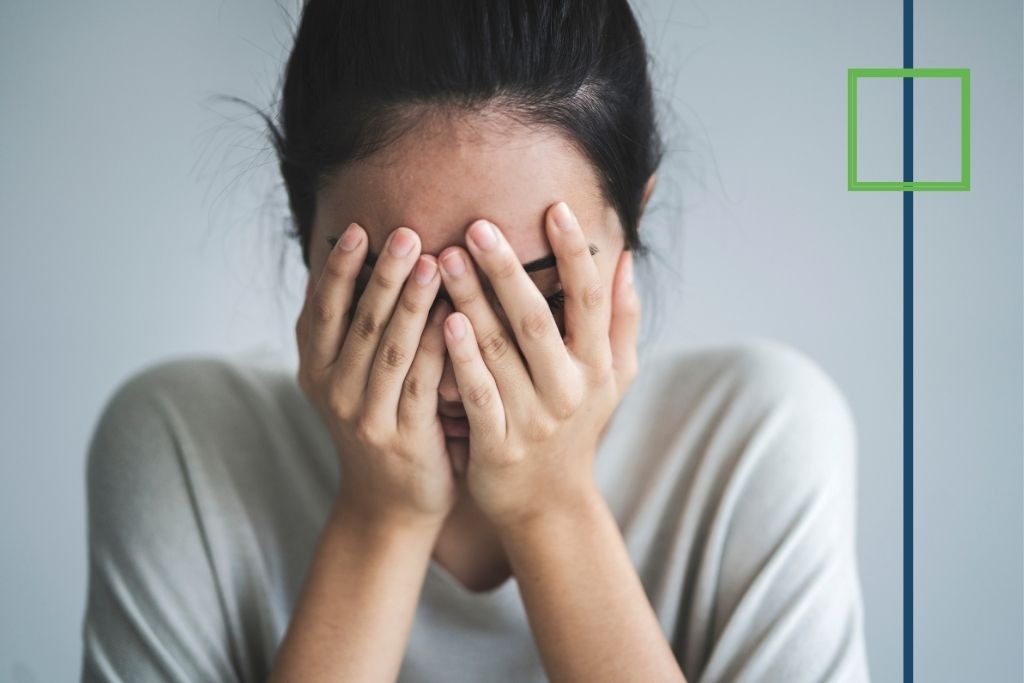What is Celexa?
Celexa, also known as citalopram, is used to treat anxiety. It’s a selective serotonin reuptake inhibitor that is intended to help people feel better and have more energy. It has also been found to be effective in treating anxiety disorders. It improves how the brain handles serotonin, a chemical responsible for regulating mood and feelings of happiness and well-being. The level of serotonin in your brain is increased when you take Celexa. It is hypothesized that depression is caused by a deficiency of serotonin in the brain.
Celexa and alcohol, when taken together and above the recommended dosage, may cause adverse symptoms such as nausea, sore throat, sweat, drowsiness, and insomnia. Additionally, there’s a chance of serotonin syndrome or serotonin poisoning. Severe symptoms include hallucinations, a fast heartbeat, issues with coordination, and digestive issues that might result from this. It typically happens if you simultaneously take several supplements or medications that raise serotonin levels.
It can cause side effects that may interfere with the patient’s quality of life. However, there are a few ways to minimize these side effects. First, taking the medication as prescribed by your doctor is important. Second, monitoring how the patient feels after taking Celexa is important. If they experience severe side effects or bother them significantly, they should discontinue taking the medication and speak to their doctor about other options.
Get Help. Get Better. Get Your Life Back.
Searching for Accredited Drug & Alcohol Rehab Centers Near You? Or Mental Health Support?
Even if you have failed previously, relapsed, or are in a difficult crisis, we stand ready to support you. Our trusted behavioral health specialists will not give up on you. Call us when you feel ready or want someone to speak to about therapy alternatives to change your life. Even if we cannot assist you, we will lead you wherever you can get support. There is no obligation. Call our hotline today.
FREE Addiction Hotline – Call 24/7
Mixing Alcohol and Celexa
Celexa does not increase the adverse effects of alcohol, but those who take it should still avoid doing so. It’s essential to be mindful of all possible interactions and negative effects before taking any prescription medication. If you take Celexa, you might be wondering whether you can consume alcohol while taking it.
There are several reasons why Celexa and alcohol should not be combined. The first is that combining the two substances can make negative effects more likely.
Additionally, depression, a prevalent condition in people who struggle with alcohol, is mainly treated with Celexa. Alcohol consumption can worsen depression, make it harder to alleviate and cause overdose and other issues. Due to this, it is not advised to drink while using Celexa or another type of medication for depression. Read ahead to learn more about Citalopram alcohol interactions and Citalopram interactions with alcohol.

Get Your Life Back
Find Hope & Recovery. Get Safe Comfortable Detox, Addiction Rehab & Mental Health Dual Diagnosis High-Quality Care at the We Level Up Treatment Centers Network.
Hotline (877) 378-4154Celexa and Alcohol Interaction
Alcohol can make it more difficult to address your depression. This is true, considering alcohol is a proven depressant. Drinking may have a temporary positive effect, but it quickly wears off. After drinking, the positive emotions usually fade quickly, causing you to feel more nervous or unhappy. Taking Celexa for alcoholism is not recommended.
Citalopram and alcohol use are very different since Celexa usually balances and improves mood, while alcohol is mainly a depressant. Additionally, alcohol makes you tired, inhibits your motor abilities, and impairs your judgment. These side effects may make it difficult for you to control your condition. Celexa with alcohol may also prevent you from engaging in depression treatment approaches, including regular exercise, healthy food, and medical checkups. This means it might not be wise to drink alcohol while you have depression, medication, or no medication.
Comfortable Facilities & Amenities
High-Quality Addiction & Mental Health Rehabilitation Treatment
Rehab Centers TourRenowned Addiction Centers. Serene Private Facilities. Inpatient rehab programs vary.
Addiction Helpline (877) 378-4154Proven recovery success experience, backed by a Team w/ History of:
15+
Years of Unified Experience
100s
5-Star Reviews Across Our Centers
10K
Recovery Success Stories Across Our Network
- Low Patient to Therapist Ratio
- Onsite Medical Detox Center
- Comprehensive Dual-Diagnosis Treatment
- Complimentary Family & Alumni Programs
- Coaching, Recovery & Personal Development Events
10 mg Celexa and Alcohol
The tablet forms of citalopram include 10 mg, 20 mg, and 40 mg. Adults typically take 20 mg of citalopram daily. Taking 4 liquid citalopram drops is equivalent to taking a 10 mg tablet.
When it comes to Celexa, it’s important to know that the drug does not interact with other medications prescribed for anxiety or depression. Celexa is often prescribed along with other antidepressants and anxiety medications. This is because Celexa helps to regulate mood and relieve symptoms.
However, if you’re taking Celexa alcohol, there are some things to keep in mind. Alcohol can increase the side effects of Celexa, such as drowsiness, dizziness, confusion, and even seizures. Secondly, alcohol can also increase the risk of developing serotonin syndrome.
Citalopram 20 mg and Alcohol
If you are taking Celexa, you must speak with your doctor about how much alcohol you should drink. Celexa can interact with alcohol in several ways. For example, it can make it harder for you to fall asleep or to stay asleep. It can also increase the risk of developing a blackout or drinking too much. If you drink, you must pace yourself and not overdo it. Many people do not necessarily do citalopram and alcohol reviews because medical professionals don’t recommend taking both simultaneously.
Both 10 mg citalopram and alcohol and alcohol and citalopram 20 mg will have the same effect. Alcohol can make it more difficult to think clearly and can lead to dangerous situations if you are not careful. Talking to your doctor about how much alcohol you can drink and when is important. The doctor may want you to avoid drinking altogether while taking Celexa.
Citalopram 40 mg and Alcohol
When under any medication, it is best to avoid alcohol altogether to help reduce the likelihood of side effects appearing or worsening. The amount of alcohol you should consume while taking Celexa must first be discussed with a medical professional. Alcohol and Celexa can interact in a variety of ways. For instance, it might be more difficult for you to sleep or sleep properly. Additionally, it can raise the chance of having a blackout or consuming too much alcohol. You must drink moderately and avoid getting carried away.
World-class, Accredited, 5-Star Reviewed, Effective Addiction & Mental Health Programs. Complete Behavioral Health Inpatient Rehab, Detox plus Co-occuring Disorders Therapy.
CALL (877) 378-4154End the Addiction Pain. End the Emotional Rollercoaster. Get Your Life Back. Start Drug, Alcohol & Dual Diagnosis Mental Health Treatment Now. Get Free No-obligation Guidance by Substance Abuse Specialists Who Understand Addiction & Mental Health Recovery & Know How to Help.
Celexa and Alcohol Side Effects
Alcohol with Celexa can worsen the negative effects of each drug. Celexa or alcohol’s negative effects could be perceived more severely than with either substance alone.
Common side effects include:
- Dizziness
- Drowsiness
- Confusion
- Difficulties concentrating
There are other potentially fatal interactions between alcohol and Celexa. If you take Celexa and consume alcohol simultaneously, the negative effects of other drugs may also worsen. For instance, this mix can worsen the negative effects of pain pills, sleep aids, and anxiety medications.
Other more severe side effects include:
- Inconsistent heartbeat
- Amnesia
- Coma
- Convulsions
- Hyperventilation
- Serious heart problems
- Death

Experience Transformative Recovery at the We Level Up Treatment Center.
See our authentic success stories. Get inspired. Get the help you deserve.



Start a New Life
Begin with a free call to an addiction & behavioral health treatment advisor. Learn more about our dual-diagnosis programs. The We Level Up treatment center network delivers various recovery programs at each treatment facility. Call to learn more.
- Personalized Care
- Caring Accountable Staff
- Comfortable Amenities
- Licensed & Accredited
- Renowned w/ 5-Star Reviews
We’ll Call You
Celexa and Alcohol Blackouts
Depressant medications and alcohol do not mix well. While some people drink because it makes them feel good, relaxed, or confident in front of others, alcohol is a general depressant that, combined with other depressant medications, may cause you to pass out.
Alcohol raises the brain’s dopamine levels. Nevertheless, low dopamine levels cause depression, and depressed and anxious symptoms can worsen as the first high from drinking wears off and dopamine levels drop.
You risk becoming addicted to alcohol if your brain unconsciously associates drinking with feeling better. This may make your depression worse, prolong its duration, or even increase your risk of developing alcoholism.

Citalopram and Alcohol Cravings
It is not advisable to suddenly quit taking Citalopram to start drinking. You should take the drug according to a specific schedule to be effective. If you suddenly stop taking your medication, your depression can get worse. Citalopram alcohol or alcohol while on any medication is not recommended.
Additionally, just because you missed a dose doesn’t indicate the medication is no longer in your system. Your body may accumulate Citalopram over time for it to function. Therefore, consuming alcohol could still experience side effects even if you miss your daily prescription.
To help prevent potentially serious problems, your doctor could advise you to avoid drinking alcohol completely. In some situations, your doctor could tell you that drinking now and again is acceptable. However, not everyone will encounter this, particularly if you suffer from other medical conditions. If you’ve ever experienced heart issues, let your doctor know.
Celexa and Alcohol Hangover
There are several reasons why Celexa and alcohol should not be combined. The first is that combining the two substances can make side effects more severe. Celexa should not be used on an alcohol hangover because it may do more harm than good.
Additionally, depression, a prominent condition in people who struggle with alcohol, is mostly treated with Celexa. Alcohol consumption can intensify depression and make it more complex to cure. Due to this, it is not advised to drink while using Celexa or another type of depression medication.
Celexa and Alcohol Overdose
When Celexa and alcohol are combined, there is a significant chance of an overdose. These side effects are still possible even when using Celexa at the recommended dosage. Overdose signs and symptoms include sweating, nausea, vomiting, and sleepiness. Citalopram overdose with alcohol is dangerous, you should talk to your doctor before mixing these two.
Your doctor will only manage and control your symptoms in cases of overdose. This might be the most effective technique for combining alcohol and Celexa overdose. In some circumstances, your doctor might put you on a respirator to ensure your system receives the proper air. Monitoring your heartbeat and condition may also be necessary.
Citalopram Memory Loss Alcohol
Alcohol and antidepressant drugs don’t mix well. Alcohol is a general depressant that, when taken with other depressant drugs, may cause you to pass out, despite the fact that some individuals drink because it helps them feel comfortable, relaxed, or confident in front of others. As a result, it might also be connected to some kind of memory loss brought on by blackouts or other side effects. If your brain subconsciously associates alcohol consumption to feeling better, you run the danger of developing an addiction to it. This could worsen your depression, lengthen its course, or even raise your chance of becoming alcohol dependent.
Low Dose Citalopram and Alcohol
It is important to consider a few things if you’re taking Celexa and planning on drinking. Alcohol can intensify Celexa’s adverse effects, including sleepiness, nausea, disorientation, and even seizures. It is advisable to completely avoid alcohol when taking any medication to help lower the chance of adverse effects developing or worsening. It would help if you first spoke with a medical practitioner about how much alcohol you can consume while taking Celexa. There are many possible interactions between alcohol and Celexa. For one, you might have difficulty falling asleep or getting quality rest. Additionally, it may increase the likelihood of passing out or drinking too much. You must drink responsibly and avoid taking more than usual.
Celexa and Alcoholism Treatment
Your health, your family, and your entire life can be negatively affected by untreated Celexa and alcohol addiction. When left untreated, it will be dangerous to your health and may even lead to death. To guarantee that you receive the proper treatment plan, your doctor may recommend you to an addiction expert, or an addiction recovery facility like We Level Up NJ Treatment Centers.
Drug and alcohol rehab centers serve various needs for treating Celexa and alcohol addiction and overcoming it. The first step in treatment lasts the rest of your life and is obtaining sobriety. Maintaining sobriety is a challenge you must tackle after stopping drinking or taking drugs. Because it is essential to help you become healthy, our We Level Up treatment centers include counseling, education, and support for your post-treatment recovery. The primary objective of treatment at any recovery center is the development of skills and routines that enable long-term sobriety.
Get the best possible help for you or a loved one suffering from a drug or alcohol addiction. You will better appreciate the significance of receiving the appropriate support if you know how the drug addiction diagnostic procedure works. Give We Level Up NJ a call for immediate recovery from Celexa and alcoholism.
